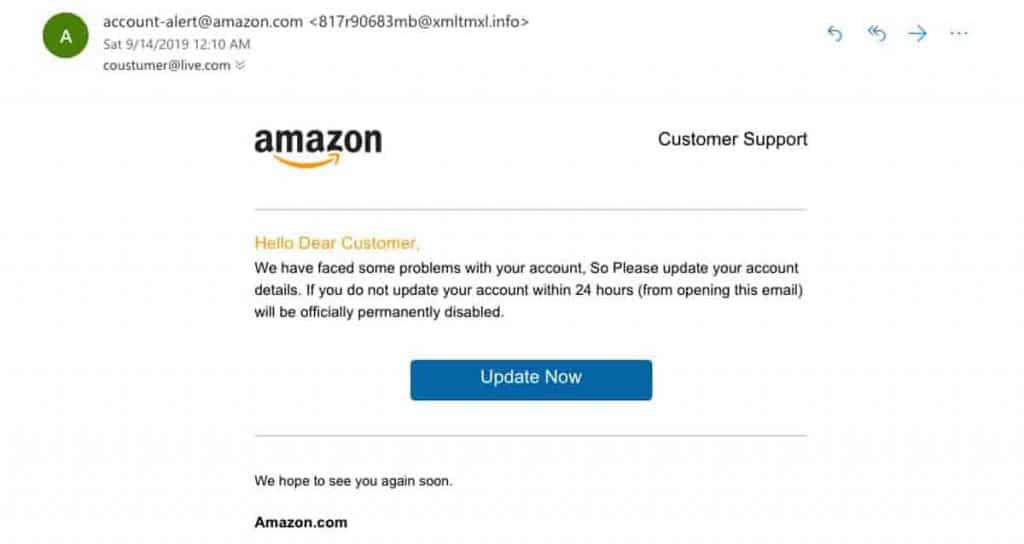The rate of digital scams is on the increase. Scammers and fraudsters are updating their playbooks and duping people not just through banks but also through fintech apps, crypto platforms and social media.
Without foreknowledge and precautions, anyone can become a victim of digital scam. From fake COVID-19 cures and phoney coronavirus tests and false vaccination to fraudulent robocalls and crypto-scams, scammers have developed innovative ways of fooling their victims.
Between March and May 2020, researchers spotted nearly 2,000 fraudulent social media posts related to fake health products and financial scams related to the COVID-19 pandemic.


According to Kaspersky, a significant increase in cybercrime will be recorded across South Africa, Kenya, Nigeria and other African countries in 2021.
How to avoid scams
Most victims of digital scam find out they have been duped way too late for anything to be done. However, there are cues and preventive steps that can be taken to avoid falling victim. Here are 8 proven ways that could help you avoid the trap of scammers.
Individuals aren’t the only ones at risk of online fraud as recent, data breaches at major retailers show that businesses and organisations also have a high risk of email and online fraud.
1) Protect your computer and Phone
Every day you receive several calls and e-mails, some of which could include digital scams. Therefore, it is important now more than ever before to install protective software like antivirus on your computer and mobile phone.
For example, scammers love to send fraudulent emails that appear to have been sent from a legitimate company, with hopes of getting you to respond. Anti-spam software safeguards you by preventing these emails from entering your inbox.


Other great softwares are firewall and Anti-spyware software. They protect you from threats like bogus pop-ups that warn of virus infections but actually want to make money by tricking the victim into purchasing rogue software or instaling a malware that steals personal data.
Similarly, most mobile phones have a feature or app like Truecaller that lets you filter out unknown callers and numbers that are likely to be fraudulent robocalls or text messages.
However, for optimal protection, make sure to keep your computer operating system and other protection programs up to date.


2) Know who is asking
Scammers often pretend to be contacting you on behalf of legitimate organisations like banks, stockbrokers, churches and job recruitment companies. You have to be cautious as they often use technology to change the phone number that appears on your caller ID. So the name and number you see might not be real.
A simple way to catch them in the lie is asking more about them and the business they claim to be representing. Asking questions that only someone working in the bank can know can work. Something like “is it my Savings or Current account” even though you only have a Saving account.
3) Stay alert and wary of calls/emails asking for personal information
Scammers always pressure you to act immediately because they want you to act before you have time to think. If you’re on the phone, they might tell you that the deadline is in a few hours or that you should not hang up. These tactics make you forget to check out their story.


To avoid falling into their trap, stay alert anytime someone unexpectedly contacts you by email or phone and asking about personal information.
Another good habit is to learn to stop and talk to someone you trust especially when you in doubt. Talking about it could help you realize it’s a scam.
4) Keep Your Passwords and Security codes Secret
Do not share passwords or give your personal or financial information in response to a request that you didn’t expect. Most legitimate organizations won’t call, email or text to ask for sensitive information like bank account, credit card numbers or pin/codes.
If you get a call, email or text message from a company you do business with requesting for codes, it is best you contact them using a website you know is trustworthy. Or look up their phone number. Don’t call a number they gave you or the number from your caller ID.
Additional precautions you can take is to regularly change your passwords for better protection, using a combination of letters, numbers and special characters etc.
5) Check the Web Address (or URL)
Even if the interface looks like the real thing, double-check to confirm that the URL is correct before entering card or other personal details. Scammers can reproduce the appearance of a legitimate website like Quickteller in order to trick the victim into entering sensitive data like credit card number and pin.
Similarly, scammers also use fake social media platforms to steal sensitive information from unsuspecting users. A colleague recently entered into a debt of N60,000 after unknowingly chatting with a fake Carbon Twitter handle that used the details that she provided to take a loan from her account.


It’s important to know that the web address which scammers use for phishing may closely resemble the authentic website. It may even contain the address of the authentic website, but also includes code to reroute the traffic to a false website.
6) Avoid deals that are too good to be true.
If the price is super-cheap, the product promises miracle results, or the websites promise expensive gifts like iPhone promos, it’s probably a scam.
Although the pop-ups we often see offering you an iPhone or a flat-screen TV if you spin the wheel looks attractive, it is a trick to get you to provide sensitive information or purchase products and services.
A student, Demilade told Technext that his account was emptied after he tried a ‘Spin the Wheel’ to win an iPhone. He revealed that after announcing that he had won an iPhone they told him to pay for delivery. He recounted that it was at this point he entered his card details and was suddenly debited.


Similarly, Nike, a chrome user narrated how close she came to falling for “You’ve Made The 5-billionth Search” scam. The webpage tricks people into believing that they were selected as winners of a 5-billionth search query by offering them a phoney iPhone X while collecting collect data and feed users with intrusive advertisements.
7) Don’t buy directly from unverified social media accounts
Social e-commerce is now a nom. From Instagram to Facebook, many people now buy and sell on social media. However, before buying directly from social media try to verify the seller.
This is because many sellers that use direct messaging or apps like WhatsApp or Telegram to peddle their wares are most likely frauds, especially if you can’t find a legit store.
8) Act immediately if you suspect your account has been compromised
If you think or suspect that sensitive information like account numbers, PIN, or passwords has been compromised. The first thing is to quickly notify affected companies.
Promptly blocking your card or freezing your account can be a lifesaver. It can reduce the damage and help plug all the hole the fraudsters can exploit.
In summary
With the ever-evolving and expanding digital world, cybercriminals are always thinking of new ways to fool people. So apply a large dose of caution anytime you’re on the web.
Following the points listed above will greatly reduce the risk of you falling for a scam. But if you fall for a cyber scam anyway, don’t be embarrassed. Report it, it may save others from falling for the same trap.





